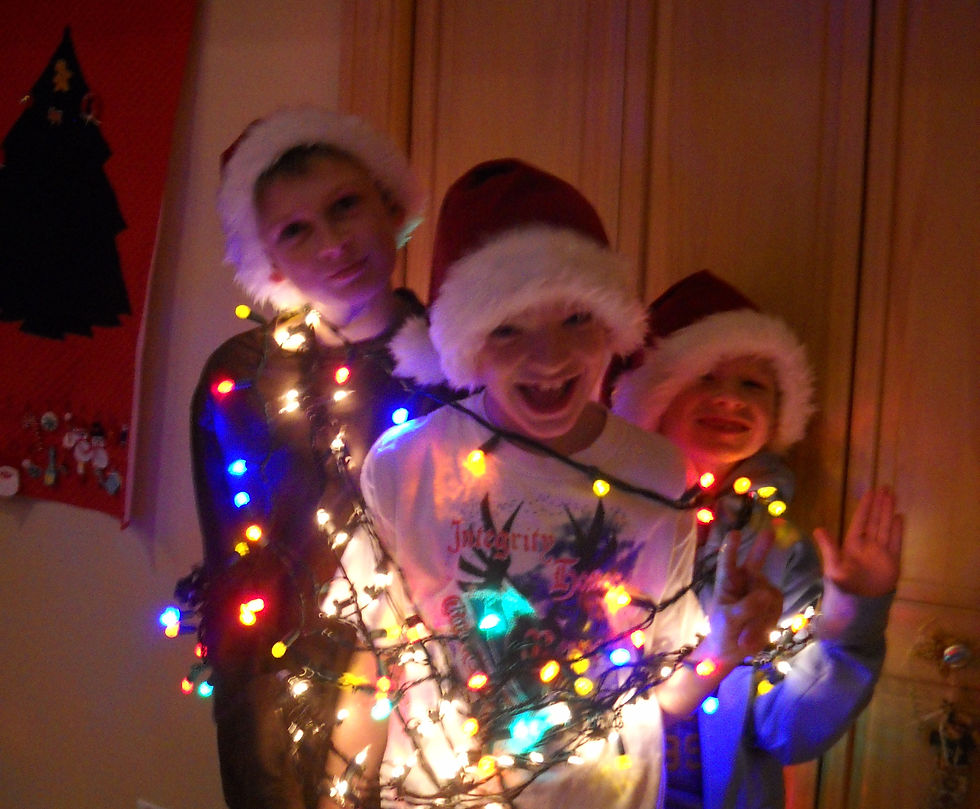perspective
- Melissa Westemeier
- Aug 25, 2020
- 4 min read
I'm different than I was yesterday. Every day I learn new information or have a new experience, and my knowledge expands and my understanding shifts. It's called growth, evolution, development. This idea of knowledge changing our understanding is the cornerstone of education. I tell my students not to get frustrated when they don't immediately grasp a concept or ace an assignment--"This is new, you wouldn't need my class if you already knew this! That's why we're here--to learn!" Sometimes it's a surprise to apply this sage advice to myself.
For example, until two weeks ago, I thought "Belarus" was pronounced "Bell-air-us." But then I listened to NPR and heard it pronounced differently. "Bell-ah-roos." Ah. This made me wonder what other words I attach my American-English understanding to and consequently mispronounce.
About a year ago I discovered my spacial concept about where I live was ALL WRONG. We were sitting around our fire pit with friends and one of them asked where the cheese factory was in relation to our house. I pointed one way, D another and T yet another. We looked at each other in confusion. Well, the two county highways that intersect at our corner run north-south and east-west, so the cheese factory must be there. But evidence suggested otherwise when T climbed on the roof and pointed to the cheese factory--about 40 degrees over from where I had pointed. And evidence was also offered by the sun setting...in the west, right? Why didn't I know correct directions? Because our house sits at an angle to the roads, my "west" was actually "south" and also? That east-west county road doesn't run directly east-west. These elements combined to misdirect me for seventeen years.

Does this mean I was wrong? Well, duh. I was wrong.
I am wrong about plenty of other things, too, but like most folks, I arrogantly walk around assuming my view of things is accurate.
Except it isn't--not always.
And because I'm always learning and understanding, my opinions change, too. I read this marvelous essay about The Catcher In the Rye. I'm not a fan of the book, but I've been a fan of other books that frankly do not stand up to the test of time. It's disconcerting to browse the pages of a friendly old classic and recognize sexist or racist attitudes leaping off the page--attitudes I hadn't previously seen. They were there all the time, of course, but I hadn't noticed them because I wasn't aware of sexism or racism at the time I'd first read the book. And when the book was written these attitudes were less objectionable, so the author was representing their understanding of the world based on what they'd learned and experienced so far. Were they wrong? It depends on the context. With modern understanding and knowledge, it's arguable that a writer like Laura Ingalls Wilder was absolutely wrong about Native Americans. But when she wrote her books, her attitudes were acceptable at the time because her common understanding was very different--from the perspective of white settlers, that is. It's a tricky business to read a classic and set aside modern understanding, but it's like wearing tinted glasses in a way. Hold up one lens, a book can be a wonderful insight into a time period and culture. Hold up a different lens and the reader is appalled. If I had a daughter, would I have her read the Little House series? (I did read Farmer Boy to my sons many years ago--it was fine. A lot of descriptions of food and chores, actually.) I guess I would, but I'd also teach my daughter not to idealize white settlers and recognize the politics of the time period. (Another fun fact: Rose Wilder, Laura's daughter, is one of the founders of the Libertarian party. And my views on libertarians are known in my household!)
I've especially cringed at movies I loved when I was a teenager. Gee whiz, John Hughes sure understood us teenagers! Today I cannot avoid perceiving the misogyny and racism in Sixteen Candles! Was I a terrible person when I called that my favorite movie? It was my favorite movie--at a time when my understanding of sexism and racism looked very different--because the world was different. I'm shocked by scenes that I remember laughing at when I was sixteen. But John Hughes made his movies in the 80's, nearly 40 years ago. If he were making films today, I suspect they'd look much different.
Does this mean we shouldn't appreciate or read or watch things from the past? I don't think so. There's value in looking at "classics." We can learn so much and even fall in love with something old (like books by P. G. Wodehouse and Edna Ferber! music by Bach!) But context is important, too.
And sometimes, a "classic" wasn't that good to start with. It's possible, isn't it, that taste can be influenced by loud voices, what is popular isn't always best quality, right? And taste can change. I mean, I did think my pinstriped high-waisted Zena jeans with the pleats were the BOMB at one time. I used to believe Mountain Dew was delicious.
I'll start teaching in a whole new way next week. Context demands it. Some of the new things I do will be awful. Some will be terrific. I need to remember everyone is learning together, whether they realize it or not. And I need to remember the other important thing about learning: ASK QUESTIONS. We don't learn, grow, change, develop, evolve if we don't ask questions.



Comments